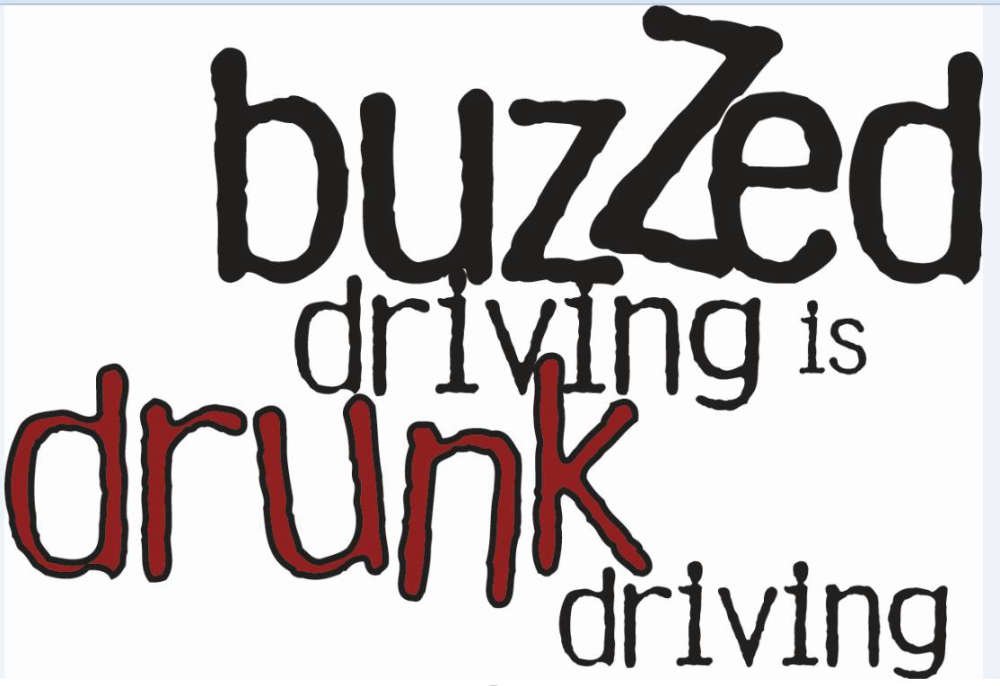
The 4th of July is a time for national celebration, full of backyard cookouts, pool parties, and fireworks. The buzz of a drink is not needed to feel the thrill of the summer holiday festivities.
But if you or someone you know decides to drink and is impaired by alcohol, it is not safe to drive a vehicle. This Independence Day, Arkansas State Police, Texarkana Arkansas Police Department and the U.S. Department of Transportation’s National Highway Traffic Safety Administration (NHTSA) urge drivers to share the message that Buzzed Driving Is Drunk Driving.
In 2021, 212 people were killed in alcohol-impaired-driving crashes over the 4th of July holiday period. That’s 212 people who started the day with party plans and ended the day with permanent, unforgettable tragedy.
According to NHTSA, 13,384 motor vehicle crash-related deaths in 2021 involved alcohol-impaired drivers. This represented 31% of all traffic fatalities in the United States for the year, and a 14.2% increase from 2020. That same year, 538 people died in motor vehicle traffic crashes over the July 4th holiday alone (6 p.m. July 2 to 5:59 a.m. July 6). Thirty-nine percent (212) of those fatalities occurred in alcohol-impaired-driving crashes. With many Fourth of July festivities wrapping up in the evening or late at night, more cars are on the roads at night. Over the 2021 July 4th holiday period, of the 212 people who died in alcohol-impaired motor vehicle traffic crashes, 82% of those fatalities occurred in nighttime crashes (6 p.m.–5:59 a.m.).
If you have to ask yourself if you’re safe to drive, the chances are low that you actually are. If you feel buzzed, you don’t belong behind the wheel of a vehicle. For some people, even one drink is too many to safely drive. If your plans include alcohol, make sure you have a sober driver on call to help you get home safely. Stay safe for the people in your life — loved ones, parents or children, and your buddies. Drive sober to protect them and to protect yourself.
“We want our community to enjoy the July 4th holiday, and we want our community to celebrate responsibly,” said Cpl. Les Munn. “We’re partnering with NHTSA to share the message that Buzzed Driving Is Drunk Driving. It is never okay to drink and drive — even after just a few drinks. There are so many options for a sober ride these days. So, plan ahead — if you’ll be drinking this 4th of July, or any other day, arrange for a sober ride.”
The 4th of July holiday period is consistently one of the deadliest times of year on the nation’s roads. From 2017 to 2021, there were 1,460 drivers killed in drunk-driving crashes over the 4th of July holiday period. Thirty-eight percent (552) of the drivers killed during those years were alcohol-impaired (with a blood alcohol concentration of .08 or higher), and nearly half (44%) of the drivers killed aged 21-34 were drunk. Although it’s illegal to drive when impaired by alcohol, in 2021 one person was killed every 39 minutes in a drunk-driving crash on our nation’s roads.
No one should mix drinking and driving, and no one is immune to the effects of drunk driving. If you find yourself drunk and stranded with your vehicle, give your keys to a sober driver who can safely drive you home. Remind your friends to never get in the vehicle with a drunk driver. If you have a friend who is about to drive drunk, take away their keys and help them get home safely. Don’t worry about offending someone — you might be saving their life, or someone else’s. Always have a plan before you head out for the evening. If you wait until after you’ve been drinking to figure out how to get from one place to the next, you’re already too impaired to make the right choices.
There are plenty of options to help impaired drivers get home safely, such as designating a sober driver or calling a taxi or ride share. If you see a drunk driver on the road, do not hesitate to contact 911, you could save a life!.
This 4th of July and every day, only drive if you’re 100% sober, because Buzzed Driving Is Drunk Driving. For more information on impaired driving, visit www.nhtsa.gov/risky-driving/drunk-driving.
